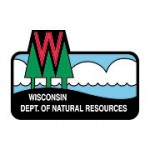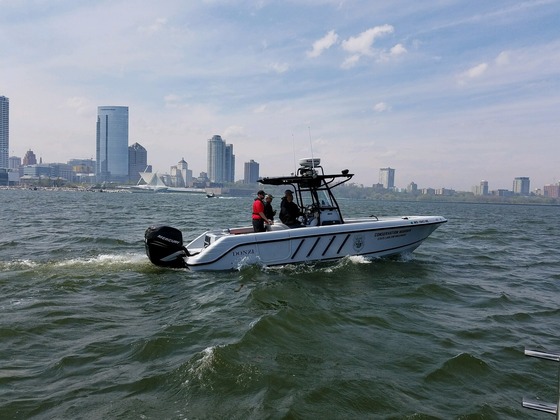Boaters, Paddlers- Spring Weather May Create Hazards
MADISON, Wis. – The Wisconsin Department of Natural Resources (DNR) reminds boaters and paddlers that spring storms with high winds, fluctuating temperatures, cold water and potential flood conditions can make navigating lakes and rivers dangerous.
“People are always in a rush for that first paddle or fishing excursion of the year,” said Lt. Darren Kuhn, DNR boating law administrator. “While the air temperatures might be warm, the water is just above freezing, and accidental falls overboard could prove deadly quickly as hypothermia sets in. Cold water immersion can lead to hypothermia more quickly than during the traditional summer boating season.”
Spring runoff and melting ice cover increase water levels, bringing the risk of dangerous currents that might affect how a boat handles on the water and could cause drowning. It’s also important to be mindful near dams. Never anchor below a dam, as water levels can change.
Lt. Kuhn says the first item in the boat should be a life jacket for the operator and enough for each passenger. All motorized and nonmotorized vessels must have at least one U.S. Coast Guard-approved wearable life jacket for each person on board.
“Boating emergencies can happen in the blink of an eye, and there isn’t time to get your life jacket on before danger strikes,” said Lt. Kuhn. “Wearing a life jacket will increase your chances of survival should you fall overboard into the cold and often fast spring waters.”
Other top spring boating safety tips include:
- Slow down. Slowing down reduces the risk of collision with other boats, downed branches or submerged objects that can’t be seen in time to avoid when navigating at faster speeds.
- Check the weather and bring your phone or weather radio to check the weather throughout the day. Spring weather changes quickly and can bring severe storms.
- Dress in layers. Temperatures fluctuate greatly in the spring, from just below freezing in the morning or night hours to warm and pleasant by mid-day. Heavy, bulky clothing increases the risk of drowning if an accidental fall overboard occurs. Heavy clothing absorbs the water and can not only make it more difficult to hold yourself above the water but also decrease the body’s ability to warm itself in cold water.
- Let someone know where you are going and when you’ll return home. Stick to this plan and communicate any changes.
- Enjoy the waters sober and know your limits. Alcohol blurs a person’s judgment, reaction time and abilities.
- Test your equipment before you get on the water.
- Steer clear of spillways near dams and keep the motor running to maneuver near dams.
- Keep two hands on the gunwales of a small boat; evenly load your gear and do not overload it.
NOTE: This press release was submitted to Urban Milwaukee and was not written by an Urban Milwaukee writer. While it is believed to be reliable, Urban Milwaukee does not guarantee its accuracy or completeness.
Mentioned in This Press Release
Recent Press Releases by Wisconsin Department of Natural Resources
DNR Awards Brownfield Grant to City of Berlin
Feb 24th, 2026 by Wisconsin Department of Natural ResourcesFunds Will Support Environmental Assessment
























